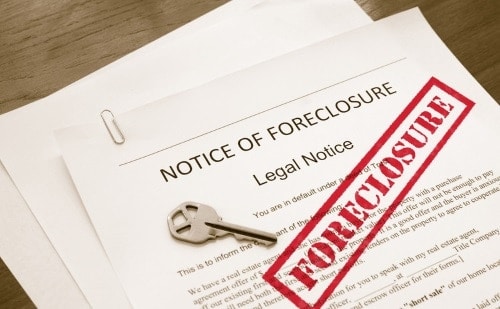Get an as-is cash offer for your home
"*" indicates required fields
Thinking about selling your house to avoid foreclosure? If you have lost your job or are facing uncertain economic future, selling your home may be a great solution for stopping foreclosure. However, your home can be a great asset and you probably invested a lot of money in your home. With so much at stake, you don’t want to make rash decisions, that you may regret later.
Before you make a decision about selling your home to avoid foreclosure you need to ask yourself these five important questions.
Don’t make a decision until you answer these 5 questions
- Do you have equity in your home? If so, how much?
- Do you have verifiable income? If so, how much?
- Do you expect your current financial hardship to be SHORT or LONG-TERM?
- Do you have debts other than the mortgage? If so, how much?
- What are your goals for your home and personal credit?
Your answer to these questions will help you determine the best course of action for you. It might be a short sale, bankruptcy or simply selling your home.
Can I sell house while in foreclosure?
You may be wondering if you can sell a house once it’s in foreclosure. The answer is a resounding yes! Contrary to the movies, your bank doesn’t want to take your house. They’re in the business of lending, not owning real estate.
Can I sell a house when I owe more than it’s worth?
When you own a house and you owe more than the home is worth, your home is considered to be underwater. As of Quarter 2 of 2018, roughly 8% of the homes in one wealthy Sacramento suburb were still underwater. If your home is underwater, you an still sell it. The process of selling an underwater home is called a short sale. In a short sale, you negotiate with your lender for them to get back less money than they loaned to you for the house. We recently wrote a complete explanation of how to do a short sale and still buy another house.
How long does it take to foreclose on a home?
In California, you have 121 days from the date of your notice of default until the house can be sold at auction. Other states have different time frames. For example, it only takes 27 days in Texas for the foreclosure process.
No matter what state you live in, if you want to avoid foreclosure, you need to take action now.
Benefits of selling house to avoid foreclosure
If you are debating whether to sell your home or just let the bank foreclose, here are five reasons why selling your home to avoid foreclosure may be a better option.
1. Avoid higher interest rates in the future
 The first and most obvious benefit to selling your house to avoid foreclosure is protecting your credit. You may have a few late mortgage payments, but it doesn’t have to get worse. Foreclosure stays on your credit report for seven years impacting other loans and potentially costing you higher interest. Some employers may even use your credit report when considering your job application.
The first and most obvious benefit to selling your house to avoid foreclosure is protecting your credit. You may have a few late mortgage payments, but it doesn’t have to get worse. Foreclosure stays on your credit report for seven years impacting other loans and potentially costing you higher interest. Some employers may even use your credit report when considering your job application.
2. More options to buy another home
There are loan programs for people who have gone through foreclosure, however, these programs a limited. If you think you might ever want to own a home again, selling your home instead of foreclosure gives you access to more home loan programs. The type of loan you can qualify for may even be limited after seven years.
If you ever apply for a home loan in the future it will probably ask you “If you have ever been foreclosed on or given a deed lieu“. All of the government backed loans like Freddie Mac, Fannie Mae, VA and FHA will ask this question. You must answer truthfully, even if it’s been longer than seven years. Failure to do is considered bank fraud and easy to find by searching public records.
California one action rule
To add to your already stressful situation, some states allow the lender to pursue a borrower for the money, even after the borrower has lost their home! Fortunately, in California, we have the “one action rule”. With the one action rule, the lender can pursue either the borrower for the money, or take the house back, but not both. However, if there are any additional loans against the property, these lenders will not be able to get the home, and may obtain a court judgement to collect their money.
3. Avoid potential eviction
In California, previous owners have three days after the recording of the trustee’s deed to vacate their property. Most buyers will work with the former owners to arrange an amicable moving out. Sometimes they may even offer cash to help with moving expenses, but they are not required to. However, if the previous owner does not move in a reasonable time frame, an eviction is likely. From the new owner’s perspective, they can either give you cash to help you move, or pay an eviction attorney. But they aren’t likely to do both. If the new owners need to hire an eviction attorney to take possession of the home, they are probably aren’t going to give you cash to move too.
If you are evicted, you will only encounter more problems. With an eviction, it will be far harder to find a place to rent as most landlords will reject applicants with evictions.
4. Stay in control and reduce your stress
No matter what solution you opt for, it will be stressful. However, selling your house will be much less stressful than waiting for the knock at the door waiting to be told that your home has been foreclosed. By taking the steps now to sell your house, you can stay in control of your move.
5. Potentially receive more money from sale
Typically, you can sell your home for more money than if your home is sold at a foreclosure sale. When a house is sold at foreclosure, the lenders, foreclosure attorneys and auction company are paid first. If there’s any funds left over, these remaining funds go to the previous homeowner. However, if you can avoid the foreclosure auction, the money that normally would go to the foreclosure attorneys and auction company, would go to you. Sure, you might get cash for keys if your home is foreclosed, but that is no guarantee. Even then, the fees charged by the foreclosure company will cost far more money than any cash for keys you might receive.
